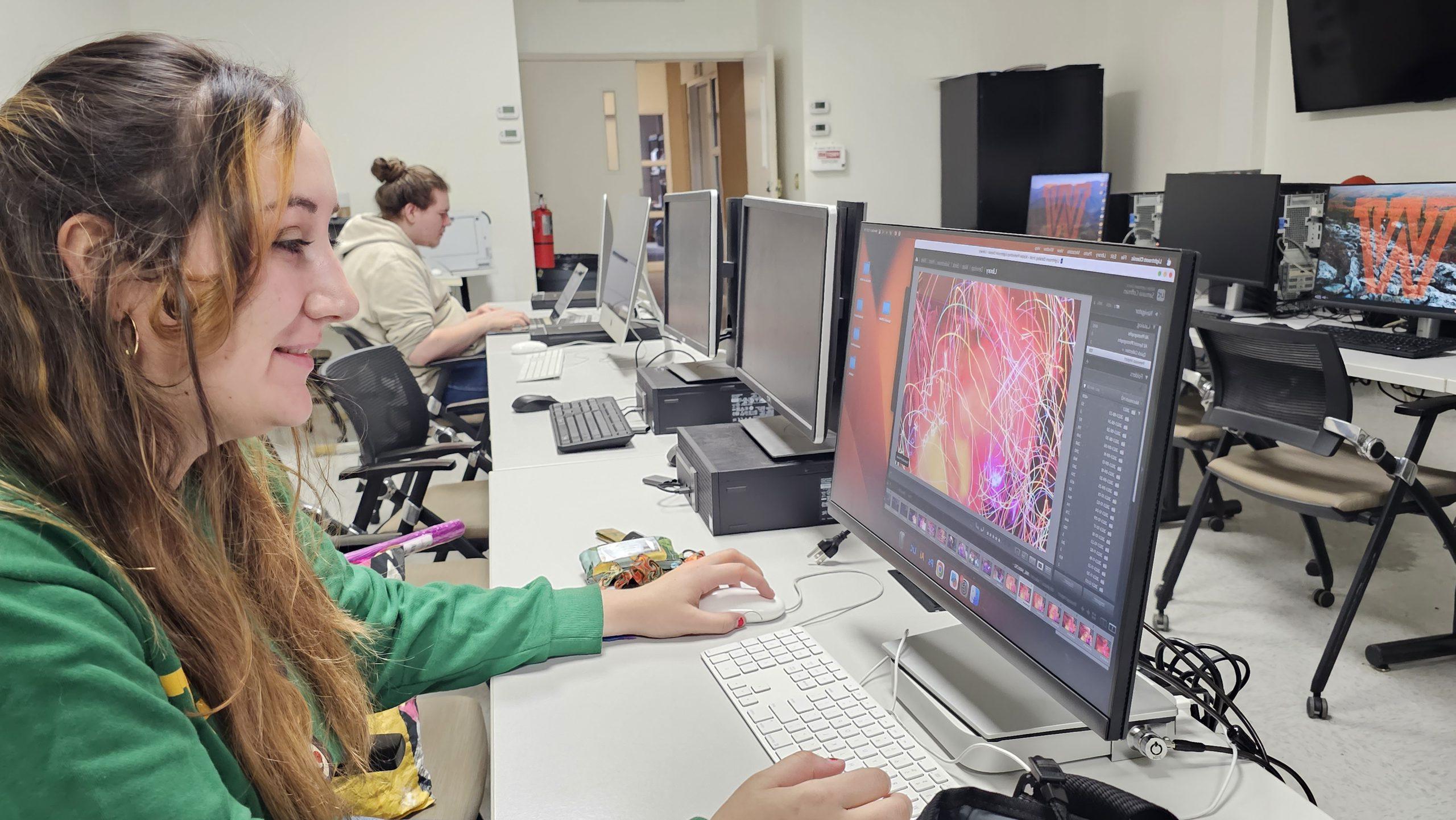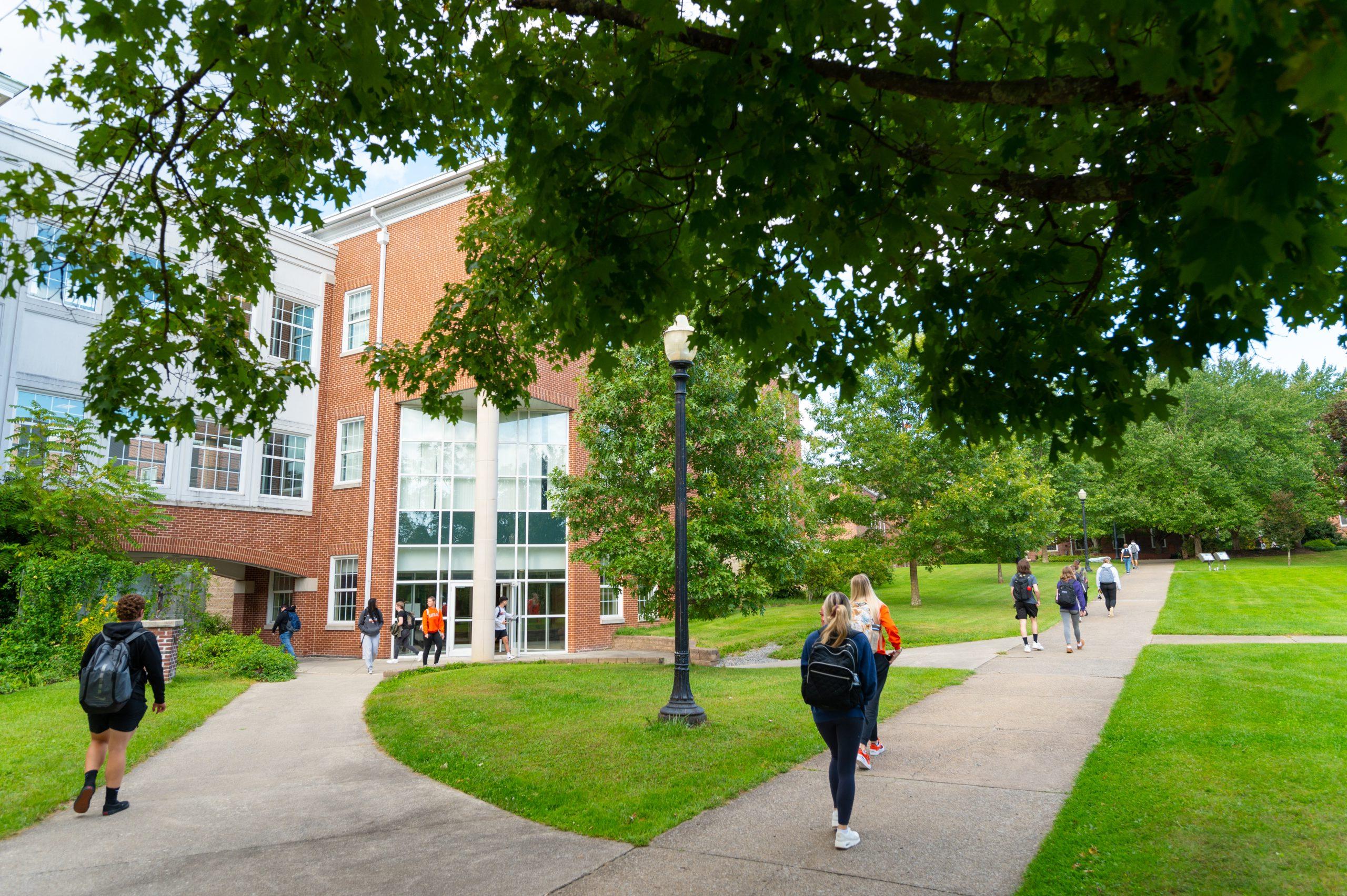Biology & Environmental Science
Colleges and Programs of Study
West Virginia Wesleyan is proud of its reputation for the high acceptance rate of its graduates into medical, dental, veterinary, and science-related graduate schools. Many of our biology majors pursue careers in these areas. Wesleyan biology majors have also undertaken careers in education, research, environmental studies, and pharmaceutical sales.
As a biology major, you’ll learn science by doing science, in lab classes and research projects. The curriculum emphasizes observation and experimentation in the field and laboratory. In addition to the biology major, we offer an environmental studies major and minors in biology, human biology, and environmental studies. For students who want a greater degree of specialization, we offer two concentrations within the biology major: Molecular Biology/Biotechnology and Environmental Science and Ecology. For academically talented students who have an interest in research, we offer the opportunity to earn a Special Honors designation in biology. There’s no substitute for direct, hands-on experience, which biology majors gain through a career-related internship or research project carried out to meet our experiential learning requirement.


-
SURE Grant
SURE & Maier Summer Research Program- Application due March 14 (click for application)!
Do you want to be involved in a long-term research project that has the potential to transform the way you think about science and your future career as a researcher?
West Virginia Wesleyan College is excited to host the Summer Undergraduate Research Experience (SURE) and Maier research programs during summer 2023 to offer extended research experiences in the STEM areas (science, technology, engineering, and math). The SURE program will run for 8 weeks between May-July and is available to students from WVWC and other institutions around the state. Students will earn a stipend of $3,500 with free on-campus housing. Students will also be required to present their research at a state or regional scientific meeting (travel funds available).
Interested? Apply!
- Consult the list of faculty involved below.
- Have a discussion with the faculty member of interest to see what projects they will be working on.
- Submit the application which will include a personal statement and unofficial transcripts.
- Application deadline is Tuesday, March 14. Successful applicants will be notified by the end of March.
Participating Faculty
Dr. Bruce Anthony
Dr. Kim Bjorgo-Thorne
Dr. Tracey Delaney
Dr. Caleb Gibson
Dr. Kathy Gregg
Dr. Joseph Niederhauser
Dr. Jesse Oldroyd
Dr. Melanie Sal
Dr. Joseph Wiest
-
McCuskey Fellowship Program
Transform your West Virginia Wesleyan Experience with the McCuskey Fellowship!
Apply now for the McCuskey Family Fellowship in undergraduate research for a scholarship to work with a faculty on a primary research fellowship for three years of study! You’ll be a part of an unparalleled high-impact practice in designing and creating your research project over three years!
Kim Bjorgo-Thorne, Department Chair, Associate Professor
Email: bjorgo@xgcr.net
Phone: 304-473-8126
Joseph Niederhauser, Assistant Professor
Email: niederhauser.j@xgcr.net
Phone: 304-473-8125
Melanie Sal, Associate Professor
Email: sal_m@xgcr.net
Phone: 304-473-8034
Katharine Gregg, Professor Emerita, Curator of the George B. Rossbach Herbarium, Director of the Greenhouse
Email: gregg@xgcr.net
Phone: 304-472-5055 Herbarium phone: 304-473-8236.
Luke Huggins, Professor of Biology
Email: huggins@xgcr.net
Phone: 304-473-8097
Amy Rogosky, Instructor, Assistant Lab Coordinator
Email: rogosky_a@xgcr.net
Phone: 304-473-8122
Jeanne Sullivan, Professor Emerita
Email: sullivan@xgcr.net
-
Biology – B.S.
Including concentrations in Molecular Biology/Biotechnology or Environmental Science and Ecology
- Demonstrate your knowledge of the major fields of biology: molecular and cellular biology, physiology, genetics, ecology, evolution, and systematics.
- Design and conduct experiments, analyze data, and place your conclusions in a larger scientific context.
- Communicate scientific information effectively, both in writing and orally.
- Analyze and discuss current scientific literature.
- Work effectively in groups to investigate research questions and solve problems.
-
Environmental Studies – B.A.
- Demonstrate your knowledge of the major fields of biology: molecular and cellular biology, physiology, genetics, ecology, evolution, and systematics.
- Design and conduct experiments, analyze data, and place your conclusions in a larger scientific context.
- Communicate scientific information effectively, both in writing and orally.
- Analyze and discuss current scientific literature.
- Work effectively in groups to investigate research questions and solve problems.
-
Biology
- Demonstrate your knowledge of the major fields of biology: molecular and cellular biology, physiology, genetics, ecology, evolution, and systematics.
- Design and conduct experiments, analyze data, and place your conclusions in a larger scientific context.
- Communicate scientific information effectively, both in writing and orally.
- Analyze and discuss current scientific literature.
- Work effectively in groups to investigate research questions and solve problems.
-
Human Biology
- Demonstrate your knowledge of the major fields of biology: molecular and cellular biology, physiology, genetics, ecology, evolution, and systematics.
- Design and conduct experiments, analyze data, and place your conclusions in a larger scientific context.
- Communicate scientific information effectively, both in writing and orally.
- Analyze and discuss current scientific literature.
- Work effectively in groups to investigate research questions and solve problems.
-
Environmental Studies
- Demonstrate your knowledge of the major fields of biology: molecular and cellular biology, physiology, genetics, ecology, evolution, and systematics.
- Design and conduct experiments, analyze data, and place your conclusions in a larger scientific context.
- Communicate scientific information effectively, both in writing and orally.
- Analyze and discuss current scientific literature.
- Work effectively in groups to investigate research questions and solve problems.
Programs of Study
-
Art and Design

-
Biology & Environmental Science

-
Business

-
Chemistry & Biochemistry

-
Communication & Media

-
Education

-
English

-
Exercise Science & Athletic Training

-
Health Sciences

-
History and International Studies

-
Mathematics & Computer Science

-
Music

-
Nursing

-
Philosophy and Religious Studies

-
Physics & Engineering

-
Psychology

-
Social Sciences

-
Theatre and Dance Department


